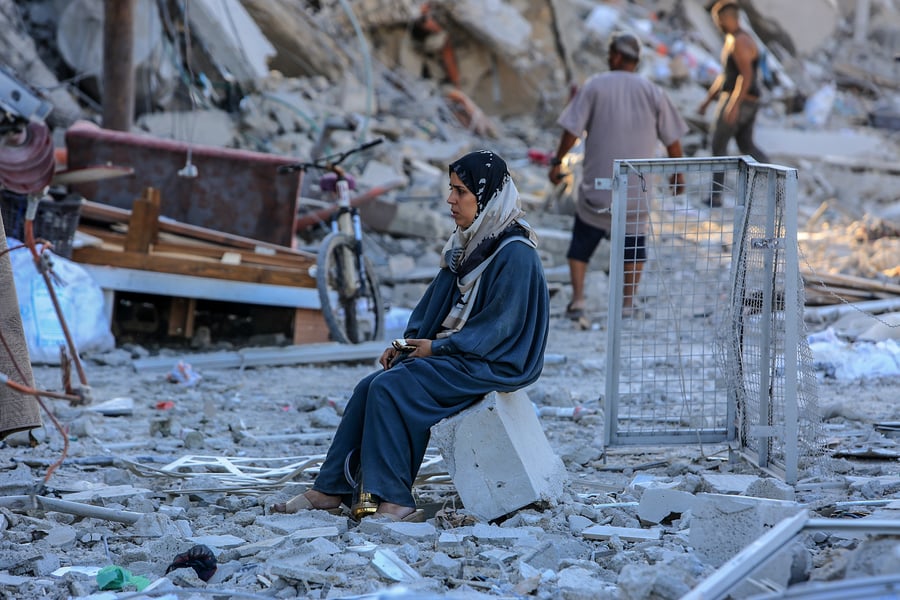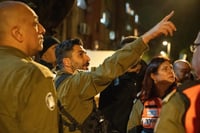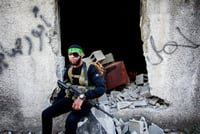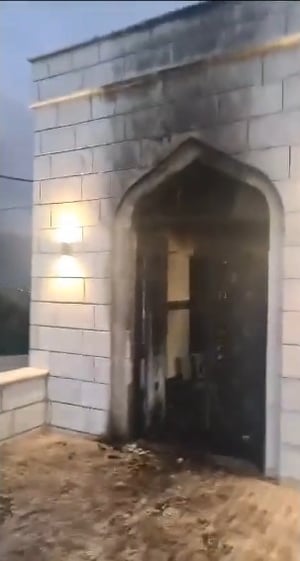
During July, Palestinian activist Amin Abed, known for his outspoken criticism of Hamas, was dragged from his northern Gaza home by security operatives, his head covered as hammers and metal bars rained down upon him. "They almost killed me, those killers and criminals," Abed reported.
For Ehab Fasfous, a journalist whose social media posts have long been a thorn in Hamas's side, the price of free speech came due on a recent Saturday. Gunmen stormed his home in Khan Younis. The Palestinian Journalists' Syndicate, in a rare public rebuke, blasted the "policy of intimidation and threat" facing reporters. They never mentioned Hamas by name – a telling omission in a place where walls have ears and shadows have guns.
But it's not just activists and journalists feeling the weight of Hamas's rule. In shelters across Gaza, where displaced families huddle in the dark, whispered conversations betray a growing frustration. "If you want to fight Israel, you should go do that. But why are you coming to hide among the civilians?" says Abu Shaker, using a nickname to shield his identity. His words echo a sentiment heard increasingly among Gazans, who just want to get back to regular life, the way it was pre October 7.
A Deadly Game of Hide and Seek
In the tunnels under Gaza, another grim drama unfolds. Here, amid the dank corridors and hidden chambers, Hamas keeps its most valuable bargaining chips: Israeli hostages. Their presence turns neighborhoods into targets, as evidenced by a devastating Israeli rescue operation in June.
U.S. and Israeli intelligence paint a chilling picture: Hamas fighters, they say, have standing orders to execute hostages at the first sign of a rescue attempt. It's a claim given weight by the recent recovery of six Israeli hostages, each bearing a single gunshot wound to the head.
Governing Amid Chaos
Yet for all the brutality of its methods, Hamas remains, improbably, a functioning government. In his Gaza City office, spared by Israeli bombs, Ismail Thawabteh, director general of the Hamas-run media office, speaks of a bureaucracy that endures. "The government in Gaza is living through a time of challenges," he says, in a masterpiece of understatement. "But it's still in place carrying out its duties every day."
Those duties, increasingly, involve maintaining order in a territory teetering on the brink of anarchy. Reports filter out of accused looters shot in the legs, of men beaten and branded as thieves.
The View from Above
Thousands of miles away, U.S. intelligence analysts pore over satellite imagery and intercepted communications, piecing together the fractured mosaic of Gaza's internal strife. Vice Admiral Frank Whitworth is the head of the agency analyzing this data, and he says that this agency's task is is similar to that of an an umpire. "We certainly are enabling Israel to protect itself ... But we are also calling every ball and strike and balk and foul, and we're doing so in a very complete way."
As night falls over Gaza, the sound of drones mingles with the distant thud of explosions. In hospitals and homes, in tunnels and tents, two million people are caught between forces that seem beyond their control. And in the shadows, Hamas watches, its grip on power as tight as ever in a land where freedom remains the most elusive dream of all.
* The New York Times contributed to this article.













